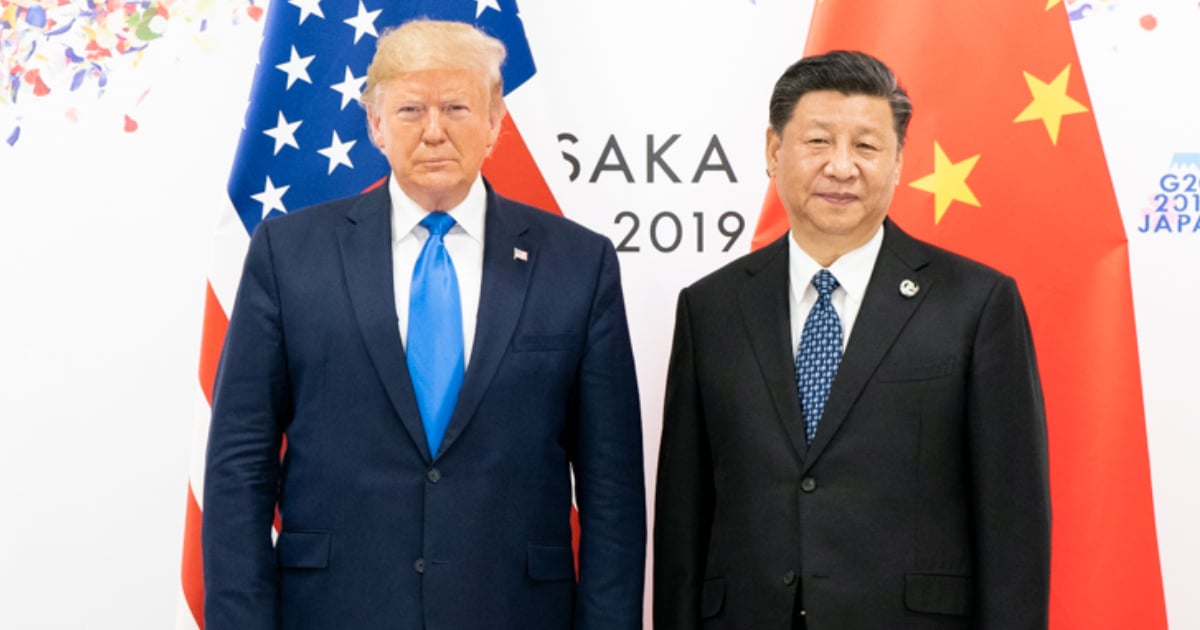
Related videos:
China announced the implementation of a 34% tariff on all imports from the United States starting on April 10, in response to the tariff policies of President Donald Trump, who previously imposed additional levies on Chinese products.
In an official statement, the Tariff Commission of the State Council of China argued that the practices of the United States do not comply with international trade rules and, moreover, seriously violate the legitimate rights and interests of the Asian country.
Trump, for his part, responded to the imposition of these new tariffs with a direct message on his social media: "China played it wrong, they panicked: the only thing they can't afford to do!"
The leader has justified his tariffs by citing the need to curb the flow of products like illicit fentanyl, which, according to the White House, comes from China.
As a result, Chinese imports have been subject to additional tariffs of 10%, thereby increasing the cost of products from that country for American consumers.
In response, China not only increased tariffs but also adopted other measures, such as including 11 American companies on its "unreliable entities list." Additionally, it imposed export controls on another 16 companies, further restricting trade between the two countries.
This tightening of tariff policies has had immediate repercussions in the financial markets.
U.S. stock futures fell significantly after China announced its retaliatory measures, reflecting the impact of uncertainty on global trade.
The measure also comes at a delicate time for the Chinese economy, which is facing a slowdown in economic growth and internal pressure to stimulate consumption.
On the other hand, Trump has also made it clear that his administration will not be limited to opposing Beijing.
In his latest statement, he announced the imposition of a general 10% tariff on all imports from countries he considers "taking advantage of the United States." This group includes the European Union, which will face a 20% tariff.
The president proclaimed April 2 as the "day of economic independence for the United States" and signed an executive order that, in his words, "will raise a wall against imports."
According to him, it all boils down to an effort to reduce dependence on foreign imports and reactivate domestic production.
Frequently Asked Questions About the Trade War Between China and the United States
Why has China imposed a 34% tariff on the United States?
China has imposed tariffs of 34% on U.S. imports in response to the tariff policies of President Donald Trump, who had previously imposed additional taxes on Chinese products. This measure is part of a series of retaliatory actions between both countries amid an escalating trade war.
What economic effects could the trade war between China and the United States have?
The trade war between China and the United States could have significant effects on financial markets and the global economy. The tensions have led to declines in U.S. stock futures and could increase inflation by raising the prices of imported goods. Furthermore, this situation could destabilize global trade relations and affect economic growth in both countries.
How has Donald Trump responded to China's retaliatory measures?
Donald Trump has responded to China's retaliatory measures with a message on social media, stating that "China played it wrong, they panicked". Additionally, he has announced the imposition of a general 10% tariff on all imports from countries he considers "taking advantage of the United States," including the European Union.
What additional measures has China adopted in response to the tariffs from the United States?
In addition to the 34% tariffs, China has added 11 American companies to its "unreliable entities list" and has imposed export controls on another 16 companies. These actions aim to further restrict trade between the two countries and are part of a series of retaliatory measures in the trade war.
Filed under: